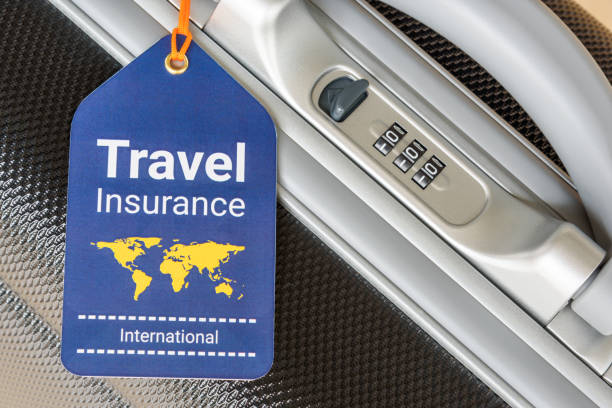Innovations and Technologies Shaping The Travel Insurance Industry

Strong 8k brings an ultra-HD IPTV experience to your living room and your pocket.
Introduction:
✍️ Discover how to save on premiums without compromising coverage by checking our article on affordable travel insurance tips and hacks.
The travel insurance industry is undergoing a profound transformation, fueled by the introduction of new technologies and changing consumer needs. With a growing demand for personalized, flexible, and efficient solutions, travel insurance companies are embracing innovative technologies to streamline operations and enhance customer satisfaction. From artificial intelligence (AI) to on-demand insurance policies, these innovations are reshaping how insurers offer coverage and how travelers access it. In this article, we will explore some of the key innovations and technologies driving the future of the travel insurance industry, including the rise of on-demand insurance in the gig economy.
1. Artificial Intelligence (AI) and Machine Learning in Travel Insurance
Artificial Intelligence (AI) and machine learning (ML) are two of the most significant technological advancements transforming the travel insurance landscape. These technologies are changing how insurers underwrite policies, manage claims, and assess risks, making the process more efficient and accurate.
Download FREE Sample of Artificial Intelligence Market
In underwriting, AI can analyze vast amounts of data, including customer profiles, travel patterns, and historical claims data, to assess risk more accurately. This allows insurers to offer personalized pricing and tailored policies, ensuring that customers pay premiums that reflect their individual risk profiles. For example, travelers who frequently engage in high-risk activities, such as adventure sports, may be offered higher coverage limits or specialized insurance options.
Machine Learning also plays a crucial role in the claims process. By automating many aspects of claims assessment, AI can identify fraudulent claims more effectively and speed up claim resolution. Insurers can use ML algorithms to detect patterns in claims data, flagging suspicious activities and ensuring that only legitimate claims are processed. This reduces operational costs for insurers while providing faster and more accurate service to policyholders.
Download FREE Sample of Machine Learning Market
Additionally, AI-powered chatbots and virtual assistants are becoming a staple in customer service. These technologies enable insurers to provide 24/7 support to customers, answering queries and assisting with claims in real-time, thereby improving customer engagement and satisfaction.
2. The Role of Big Data in Personalizing Travel Insurance
Big data is playing an increasingly vital role in personalizing travel insurance offerings. The availability of massive amounts of data—from social media activity to real-time travel information—enables insurers to gain deep insights into customer preferences, behaviors, and needs. This information can be used to create highly personalized insurance policies that cater to the specific requirements of individual travelers.
For example, insurers can analyze a customer’s travel history, preferences, and health data to provide them with customized coverage. If a traveler frequently visits high-risk destinations or participates in risky activities, the insurer can offer specialized coverage that addresses these factors. This personalized approach ensures that customers only pay for the coverage they need, increasing customer satisfaction and retention.
Big data also helps insurers improve their risk assessment capabilities. By analyzing large volumes of data from various sources, insurers can identify emerging risks, such as natural disasters, political instability, or disease outbreaks, and adjust their policies accordingly. This proactive approach allows insurers to stay ahead of potential disruptions, providing customers with the most relevant and up-to-date coverage.
3. Blockchain Technology for Transparency and Fraud Prevention
Blockchain technology is gaining traction in the travel insurance industry due to its ability to provide secure, transparent, and immutable records of transactions. Blockchain’s decentralized nature allows for tamper-proof storage of data, which is crucial for ensuring the integrity of travel insurance policies and claims.
Smart contracts, which are self-executing contracts stored on a blockchain, are one of the most promising applications of blockchain in travel insurance. These contracts automatically execute predefined actions when certain conditions are met. For example, if a flight is delayed or canceled, a smart contract can automatically trigger a payment to the insured, eliminating the need for manual claims processing and reducing the potential for human error.
Blockchain also enhances fraud prevention by providing a transparent, auditable trail of all transactions. Insurers can use blockchain to securely record policy details, payment histories, and claims data, making it easier to verify the legitimacy of claims and prevent fraudulent activity. This not only protects insurers from financial losses but also improves trust between insurers and customers, leading to higher customer satisfaction.
4. The Rise of "On-Demand" Travel Insurance in the Gig Economy
One of the most exciting innovations in the travel insurance industry is the rise of on-demand insurance, particularly in the context of the gig economy. With the proliferation of freelance and contract work, many workers are increasingly engaged in short-term, flexible employment arrangements. This shift in the workforce has led to a greater demand for on-demand insurance products that provide coverage for specific periods or events, rather than requiring travelers to commit to long-term policies.
On-demand travel insurance allows consumers to purchase coverage for the exact time frame they need, whether it’s for a single trip, a day of travel, or a specific activity. This flexibility is particularly appealing to gig workers who may not need traditional, year-round travel insurance but still want to be covered when they are traveling for work or leisure.
For example, a freelance photographer may need travel insurance to cover a work-related trip to a remote location for a few days. Rather than purchasing an annual policy, they can opt for on-demand coverage, ensuring they are protected during their travels without committing to an entire year of coverage. This on-demand model also works well for travelers who only occasionally take trips or prefer to purchase coverage for specific activities, such as skiing, scuba diving, or hiking.
The gig economy has contributed to the rapid adoption of on-demand insurance products, as workers seek insurance that aligns with their unique lifestyles and schedules. Insurers that offer flexible, on-demand policies are tapping into a growing market of consumers who want personalized, cost-effective coverage without the long-term commitment.
5. Integration of Wearable Technology in Travel Insurance
The use of wearable devices, such as smartwatches and fitness trackers, is becoming increasingly common among travelers. These devices collect real-time data on a person’s health, activity levels, and location, which can be leveraged by travel insurers to offer more personalized coverage and improve customer experiences.
For instance, travel insurers can use data from wearables to monitor a traveler’s health during their trip. If a traveler experiences a medical emergency, insurers can access information from their wearable device to assess the situation and provide immediate assistance. This data can also help insurers offer discounts or incentives to health-conscious travelers, rewarding those who maintain a healthy lifestyle.
Wearables can also be used to track the location of travelers in case of emergencies, such as natural disasters or accidents. By monitoring a traveler’s real-time location, insurers can ensure that they receive timely assistance, whether it’s through emergency evacuation or medical support. This integration of wearable technology enhances the overall customer experience by providing peace of mind and immediate support when needed.
6. AI-Driven Claims Processing and Automation
The travel insurance industry is increasingly turning to AI and automation to streamline the claims process. Traditional claims processing can be slow, often requiring a significant amount of paperwork and manual verification. With the use of AI, insurers can automate many aspects of the claims process, reducing the time it takes to resolve claims and improving efficiency.
AI-driven claims processing allows insurers to analyze claims data quickly and accurately, identifying potential issues and discrepancies in real time. For example, if a claim involves a flight delay, AI can automatically cross-reference flight data to verify the delay and trigger a payment to the insured without the need for manual intervention. This automation reduces administrative costs for insurers and speeds up the claims resolution process for travelers.
AI can also help insurers detect fraudulent claims more effectively. By analyzing patterns in claims data, AI algorithms can flag suspicious claims and prevent fraudulent activity, protecting insurers from financial losses. This enhances the integrity of the claims process and ensures that legitimate claims are processed swiftly and fairly.
7. The Adoption of Sustainable Travel Insurance Solutions
As sustainability becomes an increasingly important consideration for consumers, travel insurers are beginning to incorporate eco-friendly solutions into their offerings. This includes providing coverage for sustainable travel practices, such as carbon offset programs and discounts for eco-conscious travelers.
Some insurers are now offering policies that allow travelers to offset the carbon emissions generated by their trips. For example, a traveler might be able to purchase carbon offsets as part of their travel insurance policy, supporting projects such as reforestation or renewable energy initiatives. This aligns with the growing demand for sustainable travel options and allows consumers to reduce their environmental impact while still ensuring they are protected.
In addition, insurers are introducing policies that encourage sustainable travel behaviors, such as offering discounts to travelers who opt for low-emission modes of transportation or stay in eco-friendly accommodations. These initiatives not only cater to the growing demand for environmentally responsible travel options but also help insurers appeal to a new generation of consumers who prioritize sustainability in their travel choices.
Conclusion
The travel insurance industry is being shaped by a range of technological innovations that are transforming how policies are offered, managed, and claimed. From artificial intelligence and blockchain to on-demand coverage and wearable technology, these advancements are driving the future of travel insurance and helping insurers meet the changing needs of modern travelers. The rise of on-demand travel insurance in the gig economy, in particular, is a game-changer, offering travelers greater flexibility and personalization than ever before. As technology continues to evolve, we can expect even more innovations that will enhance the travel insurance experience, providing consumers with better protection, convenience, and peace of mind.
Read the complete blog
Note: IndiBlogHub features both user-submitted and editorial content. We do not verify third-party contributions. Read our Disclaimer and Privacy Policyfor details.






